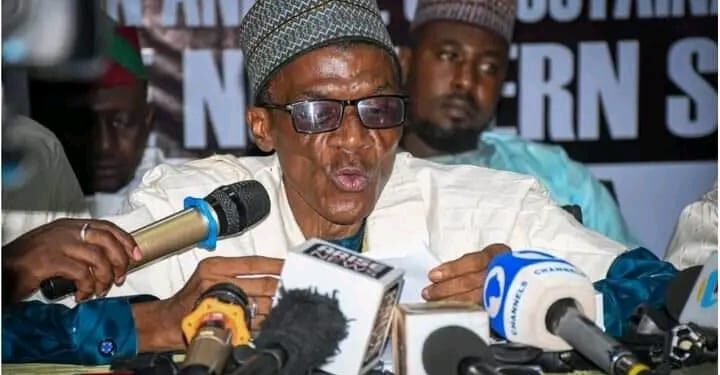The Northern Elders Forum (NEF) expresses grave concern over the planned relocation of critical firefighting simulation equipment from the Nigeria College of Aviation Technology (NCAT) in Zaria, Kaduna State.
The NEF also commends the House of Representatives for taking a bold stance against this unacceptable relocation plot, especially in light of the suspicious transfer of key departments from the Central Bank of Nigeria and the Federal Aviation Authority of Nigeria from their original locations in Abuja to Lagos.
The spokesperson of the Forum, Abdul-Azeez Suleiman, in a statement yesterday, said these actions, viewed collectively, raise serious concerns about a deliberate effort to undermine federal institutions located in Northern Nigeria.
According to the statement, the relocation of the firefighting simulator from NCAT is particularly troubling given the institution’s long-standing history and pivotal role in the development of Nigeria’s aviation industry. Established in 1964, NCAT has been instrumental in providing specialized training in aircraft engineering, flying, and air traffic management.
The statement partly read: “The firefighting simulator, a key tool in training aviation firefighting personnel, is critical for preparing future professionals to handle fire emergencies in the aviation sector. The relocation of this critical equipment could have negative implications not only for the institution but also for the broader aviation sector in the country.
“The firefighting simulators at NCAT are crucial in preparing future aviation professionals for potential fire emergencies. Relocating these simulators to an undisclosed location could jeopardize the quality of training provided to students at the college and compromise the safety of air travel in Nigeria.
The plan to move these critical equipment from NCAT to an undisclosed location is not only disruptive but also potentially harmful, and it is crucial that it be reconsidered.
“The safety and future of the Nigerian aviation industry depend on the proper training and preparation of its professionals, and any decision that undermines this must be met with strong resistance.
“It is time for all parties involved to come together and work towards a solution that protects the interests of the aviation sector and ensures the safety and quality of training for future aviation professionals”.
The NEF strongly believes that the relocation of the firefighting simulator, initiated by Minister of Aviation Festus Keyamo, must be vehemently resisted by stakeholders.
“Such a move could have negative implications not only for local institutions but also for the broader aviation sector in the country. The quality of training provided to students at NCAT could be jeopardized, potentially compromising the safety of air travel in Nigeria.
“The safety and security of air travel in Nigeria must be prioritized above all else, and decisions regarding the relocation of critical equipment must be made with utmost caution and consideration for the future of the industry”.
NEF calls for a reconsideration of the plan to move the firefighting simulator from NCAT to an undisclosed location. This disruptive and potentially harmful decision must be carefully evaluated to safeguard the integrity and strength of federal institutions in Northern Nigeria and ensure the continued growth and safety of the country’s aviation industry.
He said any decisions regarding the relocation of the firefighting simulator must prioritize the best interests of the Nigerian aviation industry and the future professionals who will shape its trajectory.











